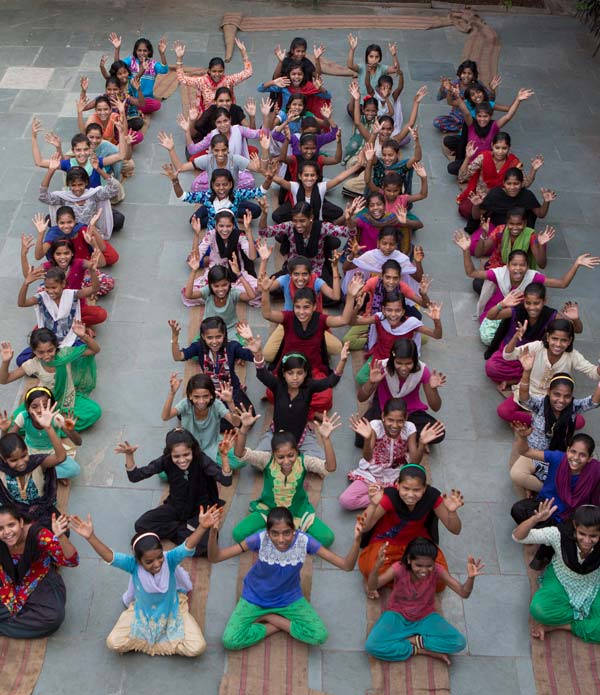REPORT
2019
The results have been transformational.
CHAI’s programs have helped millions of adults and children access lifesaving medicine to treat diseases they would have died from two decades ago.
In 2019, we were proud to transition several pieces of work to our government partners, from a transformative program that has saved the lives of thousands of mothers and newborns in Ethiopia to developing sustainable, locally sourced food to reduce malnutrition in Rwanda.
We also took on new areas of work. We expanded efforts to tackle non-communicable disease, including diabetes and heart disease, and launched a program to address cervical cancer, a preventable and treatable disease that still kills more than 300,000 women each year. We are also helping reduce significant gaps in access to life-changing assistive technology such as wheelchairs, hearing aids, and eyeglasses in low- and middle-income countries.
As we move forward, our values continue to lead our work through new challenges, including the COVID-19 pandemic. We are helping our partner governments procure personal protective equipment and other diagnostic and treatment tools, as well as preparing health workers and systems for an eventual vaccine.
At the same time, we know individuals rely on the same health services they did before the pandemic. We are working to ensure they continue to receive the care they need, and that the gains countries have made against other diseases aren’t lost as limited resources turn toward this new crisis.
-CHAI Management
We were able to dramatically transform the situation by demonstrating that if the health system is supported, it is indeed possible to offer hope for people.
- Esther Mtumbuka, Country Director, Tanzania
Transformational Change Key Principles
A CHAI program must drive dramatic impact over current health outcomes.
It must change the way others approach a problem so that today’s transformation becomes tomorrow’s common wisdom.
It must transform the approach to solving a problem on a large scale: regionally, nationally, or globally.
Any change that we enact must be sustainable after we are gone.
Infectious Diseases
Four infectious diseases cause over half of all deaths in low- and middle-income countries: HIV, hepatitis, malaria, and tuberculosis. CHAI has built on our work in HIV to address each of these diseases, in partnership with governments, donors, and other key stakeholders.
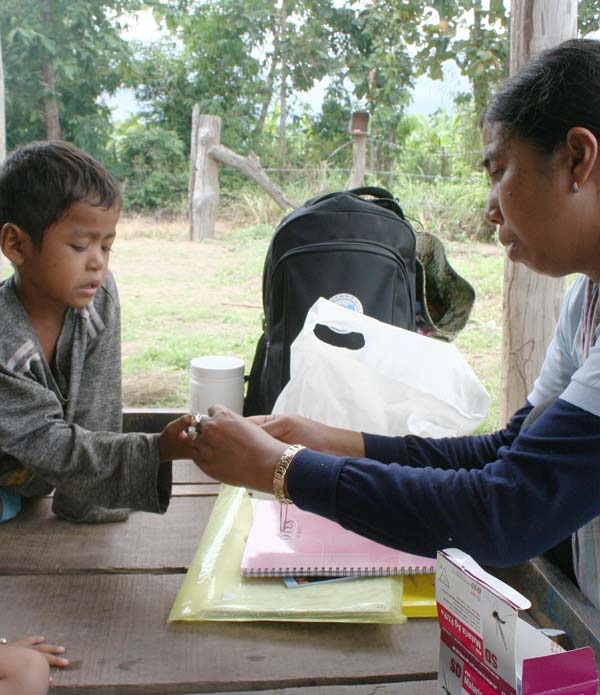

Our Approach in Action
Transforming data into action to build a better malaria program in Honduras
In 2017, the Islas de la Bahia region of Honduras saw a spike in malaria cases. Despite this, patients faced significant challenges to receiving care, largely due to limited availability of rapid diagnostic tests at health facilities and poor knowledge of malaria among health providers. Over the next two years, CHAI worked with the Islas Ministry of Health to improve the case detection system across all public health facilities in the region. By the end of 2019, we were seeing results, including a 155 percent increase in overall testing across the region and a dramatic decline in malaria cases.




Transforming the HCV commodities market in Rwanda
In 2019, Rwanda set a radical goal: to eliminate hepatitis C in five years. Not only would this make Rwanda the first country to eliminate the disease in sub-Saharan Africa, it would place the country six years ahead of the 2030 global elimination target set by the WHO. However, the cost of diagnosing and treating the disease made the plan unaffordable. To address this, CHAI and the government negotiated significant price reductions for diagnostic tests and medicines and increased screening and health provider capacity. As a result, Rwanda has accelerated its timeline for HCV elimination from 2023 to 2021.
Grassroots workers and government functionaries [are] the real agents of change, hungry for the right tools, and simply in need of support.
- Harkabir Singh Jandu, Assoc. Director, Immunization, India
Women and Children’s Health
Women and children suffer the greatest burden from disease globally. Each year, more than 300,000 women die of complications related to pregnancy and childbirth, 2.6 million babies are stillborn or die within the first weeks of life, and millions suffer from chronic malnutrition and preventable deaths from diarrhea, pneumonia and other diseases. Working with our partners, CHAI is supporting governments to significantly increase access to essential medicines, vaccines, and other tools they need to survive.
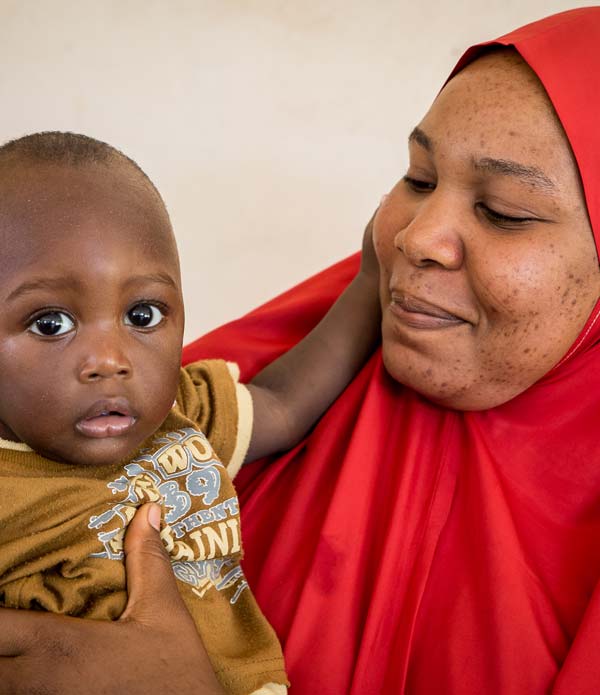

Our Approach in Action
Transforming maternal and newborn care in Ethiopia
Every year, about 15,000 women in Ethiopia die of pregnancy-related complications. Four regions – Amhara, Oromia, Southern Nations, Nationalities, and People’s Region, and Tigray – account for the most deaths. Working with the government, we developed an ambitious program to integrate maternal and newborn health reforms with postpartum family planning services in these four regions. The program has made an incredible impact, helping avert nearly 7,900 deaths over three years. The program has now transitioned completely to the government and is being adopted as part of national policy and scaled up across the country.




Transforming access to oxygen in Ethiopia
These same four regions in Ethiopia carry most of the country’s childhood pneumonia cases. Pneumonia is one of the biggest killers of children under five but can be treated with amoxicillin dispersible tablets (Amox DT) and oxygen therapy. CHAI worked with the federal and regional governments to increase the availability of these tools and train health workers how to use them. We also provided technical support to expand oxygen production by establishing oxygen manufacturing plants at health facilities across the country. As a result both of these life-saving treatments are widely available and CHAI has handed over the program to the government.
I have been inspired by the people I work with and appreciate the tenacity we apply to living our values. This has enabled us to remain committed to our mission and achieve transformational results even when we are not entirely sure what to expect.
- Betty Wariari, Sr. Program Manager, Kenya
Universal Health Coverage
Nearly half of the global population is unable to access basic health services. Every year, around 100 million people in low- and middle-income countries are pushed into poverty due to health care costs. As a result, many people who are sick avoid seeking care, leading to worse health outcomes, greater inequity, and spread of disease. CHAI is working with governments to upgrade health systems, build a strong health workforce and ensure sustainable and equitable financing so that all people can access high-quality care, regardless of their economic situation.
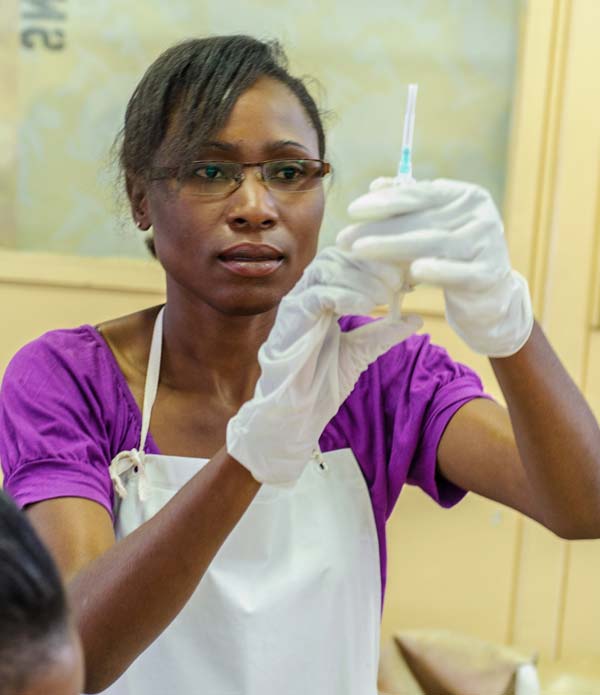

Our Approach in Action
Transforming Rwanda’s health workforce
Recognizing the necessity of a robust health workforce to provide universal health coverage to the country’s growing population, Rwanda partnered with CHAI in 2011 to develop its Human Resources for Health program. Over the course of seven years, the program has helped Rwanda’s health workforce grow substantially. The government’s high-level advocacy, with CHAI’s support, was revolutionary in its approach to development assistance: just under US$100 million from donors was invested through the country’s national budget. The scale of funding, and the direct funding of the government to implement the program, was unprecedented and continues to serve as a model for bilateral government partnership.


I have seen one of CHAI’s great strengths up close over time – the way each team and country office uses the autonomy and flexibility of CHAI’s approach to design programs specifically for the country context.
- Garrett Young, Country Director, Laos PDR
Non-communicable diseases
Each year, 15 million people die from non-communicable diseases between the ages of 30 and 69. Over 85 percent of these deaths occur in low and middle-income countries. Cardiovascular diseases (like heart attacks or strokes) account for the most deaths, followed by cancers, respiratory diseases, and diabetes. CHAI began work in this area with the launch of our cancer program in 2015. In 2019, we began to investigate ways to address cardiovascular diseases as well as diabetes, building on our experience closing gaps in service provision, especially at the primary care level.
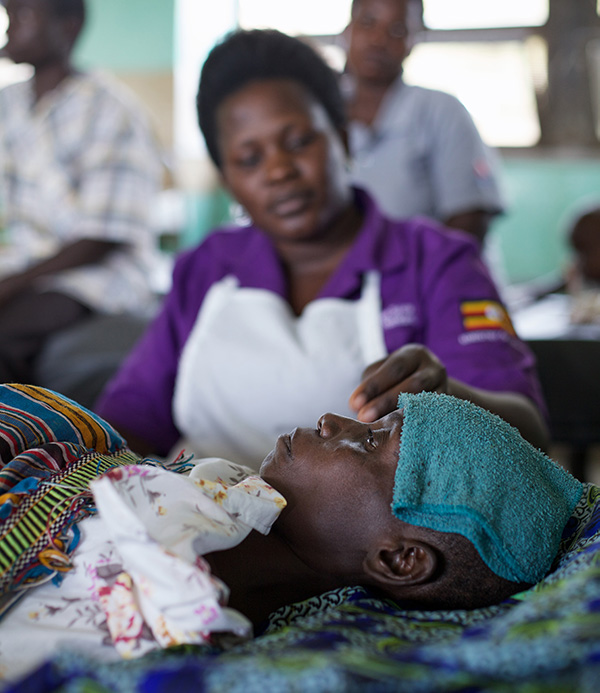

Our Approach in Action


Transforming a national cancer program
In Ethiopia, breast cancer is the leading cause of cancer mortality. In 2016, there were only two hospitals in the country that could treat the disease and 16 oncologists for a population of 100 million. Not only was it difficult for patients to access treatment, but the few who did faced long wait times. As they waited, potentially curable tumors progressed to advanced stages. CHAI partnered with the federal Ministry of Health to expand access to breast cancer treatment to six regional hospitals and address the challenges patients faced: shortening diagnostic turnaround times, improving quality of care, and the affordability and reliable supply of medicines.
